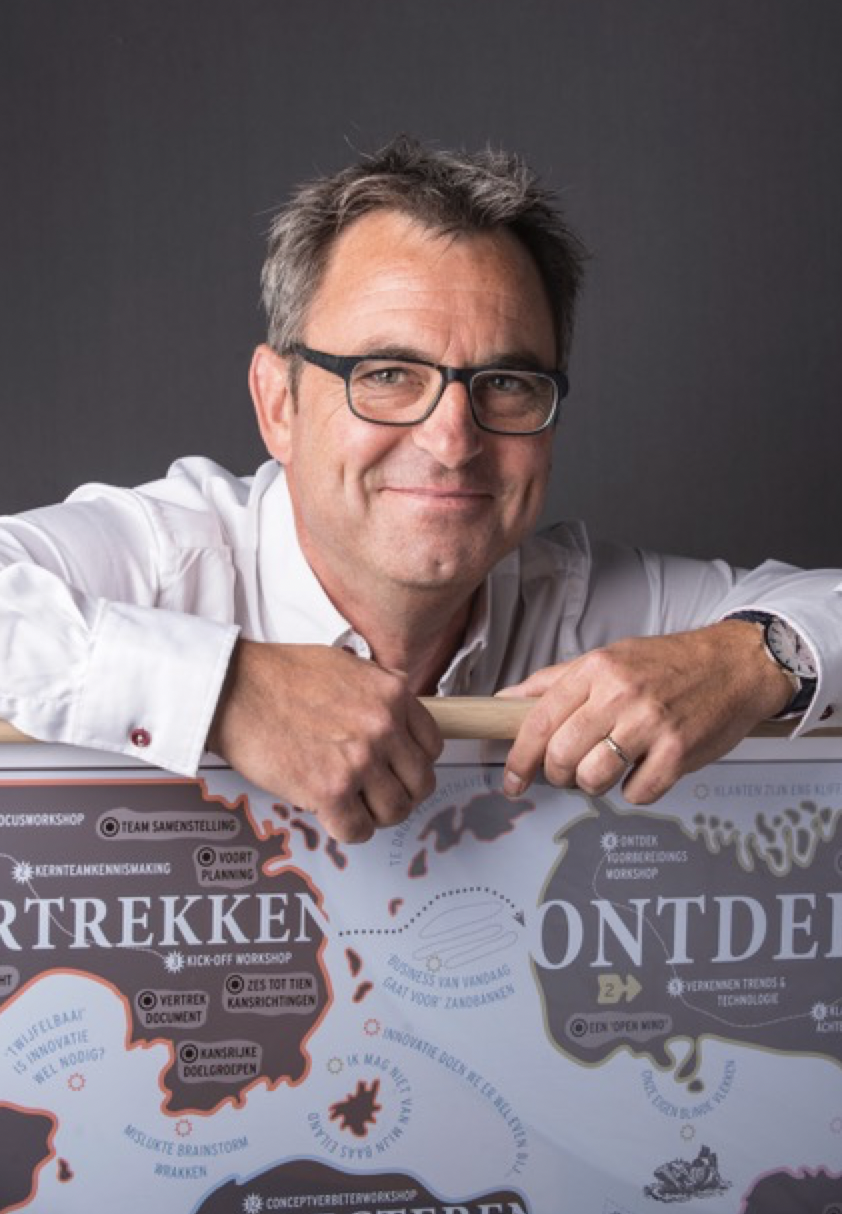In this blog, three authors from Germany, Netherlands and the UK, share their first-hand experiences of helping their clients build innovation and leadership capabilities in the context of a COVID-19 global pandemic.
As we write, our current conversations with clients reflect two broad issues. First, how do we enable innovation, as well as deliver short term, operational excellence? A recent McKinsey report summarises the widening gap between executives’ increasing wish for innovation to ensure organisational survival, and their concerns about having the resources, commitment and expertise to do it. [1]
Second, with virtual working continuing for the foreseeable future, how do we support and equip our people, to boost their ongoing resilience and effectiveness?
Florian is based in Germany and is reflecting on how to engage learners online.
I think a lot about mood and empathizing with my participants. Pre-Covid, when we’d meet face to face, I was able to read the needs and feelings of participants, and use the rooms to create the right mood. Now everything is online, and empathizing is more difficult. I wonder: are they working on a 13 inch or a 30inch screen? Are they using mac or windows? What is their sound like? How ‘fit’ are they with the IT-tools?
But online also has huge advantages. From a productivity view, people are highly involved. We can aid this through designing synchronous work, where the group all work at the same, and asynchronous work, where people can work at their own time and convenience.
In my experience, people can also be highly engaged. First, participants are more open on the screen. Online can democratize the workshop, because each participant has the same picture size and voice volume. Quieter people get a voice, which brings different perspectives and a lot of really good ideas. Asking people to have their video “on” helps others connect. Playing music for activities or in breaks, and always calculating enough time to do a good check-in and check-out. It all helps to get people a bit closer together.
We worked with a Swiss client, from the fast-moving consumer goods sector, with participants located around the world. The innovation workshops schedule was tough, and as work progressed, I felt that the personal connection was missing. There was no chance of extending the workshops, so we arranged a weekly social ‘coffee hour’. That made the difference – we were able to get to a deeper personal connection. Like magic the normal workshop changed and got more personal.
Geert is based in the Netherlands. He reflects here on how to blend online with offline (face-to-face) learning.
As an Innovation consultant I have specialized in the facilitation of innovation projects in Dutch Healthcare, where meeting and working between participants is an important feature. Covid-19 opened my eyes as an independent entrepreneur. Standing still means regression and refocusing my work and my life as an entrepreneur was not easy. A person is simply a creature of habit and needs structure.
So, in the past 6 months I started to develop my online innovation skills. I participated as a learner in the first online FORTH innovation project. I also learnt that there are well-developed online platforms such as Zoom, Microsoft Teams, Miro and Mural.
And I had the privilege to combine online and offline facilitation with my healthcare client. I would like to share my personal learning experiences from this work. The change was difficult at first and a huge challenge. But the client and I committed to the challenge to implement an innovation project and come up with innovative new products and services in Community Healthcare. Two months later, we can see that it has enriched our knowledge and experiences.
The combination of online and offline has worked well. When in the same room, people got to know each other well, and this helped their working together. The online workshops enriched the innovation project, as parts of the project were organized more efficiently and results were achieved faster. You save a lot of time due to the structure and online tools. Whole days of workshops are replaced by shorter time periods of online workshops. The balance of the two approaches has been very beneficial.
Rob is UK-based and is reflecting on his recent experiences as a learner and facilitator of online innovation skills.
Effective innovation education is a blend of creative, critical and commercial thinking. My experience with online approaches in 2020 is that the field is rapidly evolving, and being adopted globally. There are clear strengths of online learning, once people are familiar and comfortable with their technical environment. Well-designed courses can help people co-create in groups, and work individually at their own convenience. Groups can demonstrate huge productivity and original thinking. I was impressed to see 800 ideas produced in three days, by 23 consultants collaborating globally, on a new service offering.
Tutors have to guide learners through different stages of divergent and convergent thinking. When we combine a video communications platform, such as Microsoft Teams or Zoom, with a co-creation platform, like Miro or Mural, facilitators must signpost the shift of thinking approach. Sometimes people want to discuss and debate the pros and cons of ideas. Often this is time poorly spent. We guide them to the rule of avoiding premature evaluation.
I’ve also learnt that online can be effective in helping people escape the rut of their current thinking. Through exploring societal, work, technology, customer and market trends, we can help people think widely, before they generate ideas to address their current challenge. I’d say this is absolutely essential when they want to produce transformative ideas.
Finally, a staged process, such as FORTH, gives people a sense of progress. The model acts as a kind of anxiety container, and reassures people.
The challenge of combining social, emotional and technology needs is an old one, set in a new context. Insights from the research and practice of innovation tell us relationship quality is key. There must be a shared sense of high trust and high psychological safety, to take risks and develop the creative, critical and commercial thinking needed for success. As we reflect on these last 6 months, we note a substantial shift: programmes that blend online and face-to-face have become the ideal, as learning pioneers are calculating the advantages of both. We predict that balance is here to stay.
References
[1] https://www.mckinsey.com/business-functions/strategy-and-corporate-finance/our-insights/innovation-in-a-crisis-why-it-is-more-critical-than-ever

Rob Sheffield
Rob Sheffield is a Director at Bluegreen Learning, based in the UK, and a visiting fellow at the University of West of England. He has over 25 years’ experience in leadership development, and his particular interest is in helping leaders create productive and sustainable climates for innovation. Web: https://bluegreenlearning.com/ Linkedin: https://www.linkedin.com/in/robjsheffield/

Geert Schols
Geert Schols has over 30 years’ experience as a nurse, policy advisor and innovation consultant in mental health care in the Netherlands. As the founder of SAMEN EEN innovatie, he helps organizations in healthcare and profit companies to come up with products, services and process innovations. Web: www.sameneeninnovatie.nl Linkedin: https://www.linkedin.com/in/geert-schols-8a96355a/

Florian Hameister
Florian Hameister is an innovation consultant, based in Germany and focused on remote facilitation, who helps the industrial sector to be innovative again. He has over 12 years’ experience in field of development and production in the industrial sector and more than 8 years in the field of innovation processes. Web: https://www.florian-hameister.de/ Linkedin: https://www.linkedin.com/in/florian-hameister/
Declaration of interests
We have read and understood the BMJ Group policy on declaration of interests and declare the following interests: none.